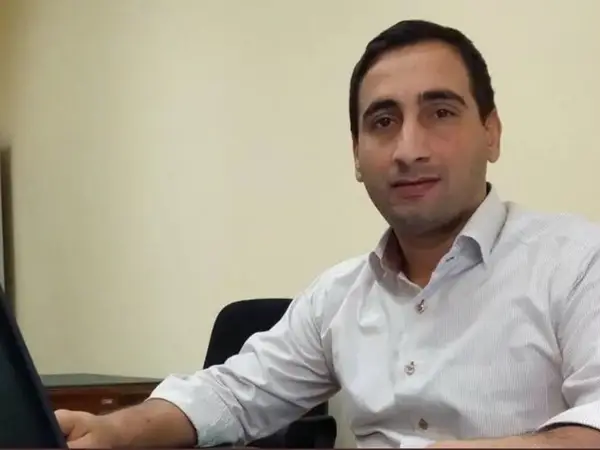Conflicting reports circulate about the death of Iranian aerospace scientist Ayoob Entezari with some calling it an assassination and government saying he was ill.
The governor-general's office in the central province of Yazd handed a certificate to Entezari's family confirming his "martyrdom", a label the Islamic Republic uses for people who died in the line of duty for the country.
Yazd’s provincial judicial authorities, however, announced on Sunday that the news published in some media about the important work the aerospace scientist was doing is not true, insisting that he was an ordinary employee of an industrial company and died in hospital due to illness.
The judiciary claimed that one of Entezari's relatives had posted “these rumors” on his social media page to attract attention and was widely republished on other platforms.
The rumors and claims about Entezari’s death attracted unusual public interest because of a series of accidents and deaths related to researchers and protected nuclear and military installations in Iran in the past two years. It has been widely reported that Israel has been behind most of these incidents.
Enetzari by most accounts wroked for the government in developing drones, a field in which Iran has made significant progress in recent years and raised alarm with Israel.
Entezari, who held a PhD in mechanical and aerospace engineering from Tehran’s Sharif University, died last week with some reports mentioning food poisoning as the cause of his death. He reportedly took part in several projects at the Yazd Institute of Technology.
According to reports, Entezari returned home after a dinner meeting with symptoms of food poisoning and died in a hospital in Yazd as his condition worsened. Some sources also reported the disappearance of the person who had invited him, with some saying that he left the country immediately after the meeting.
The circumstances surrounding his death are shady as some people on social media say the Iranian scientist was killed and the Israeli Mossad is also mentioned in some reports as being responsible.
His death was covered widely across Israeli media as the case bears the hallmark of an assassination by poisoning, reminiscent of attempts portrayed in the TV series Tehran in which Israelis tried to kill the head of Iran’s Revolutionary Guard by a toxic agent.
Reports about Entezari’s fate came a day after Iran confirmed the death of a colonel from the Quds Force, Ali Esmailzadeh of the Islamic Revolutionary Guard Corps, the second in two weeks from the unit which allegedly oversees terror operations abroad.
Iranian government and IRGC media said that Col. Esmailzadeh died “in an incident in recent days” at his home without mentioning any details after Iran International quoted sources in Iran as saying that the IRGC killed him over suspicions of espionage. Officials of the Revolutionary Guard told Esmailzadeh’s family that the reason for his death was suicide.
He was a close colleague of Colonel Hassan Sayyad-Khodaei, the acting commander of the elite Qods Unit 840, who was earlier shot dead behind the wheel of his car outside his home in Tehran on May 22 by two gunmen who fled the scene on a motorbike. The sources said that the IRGC became suspicious that Esmailzadeh divulged information about his colleague and decided to eliminate him.
